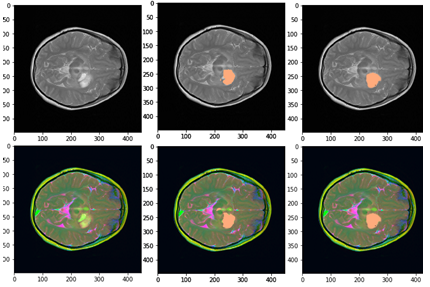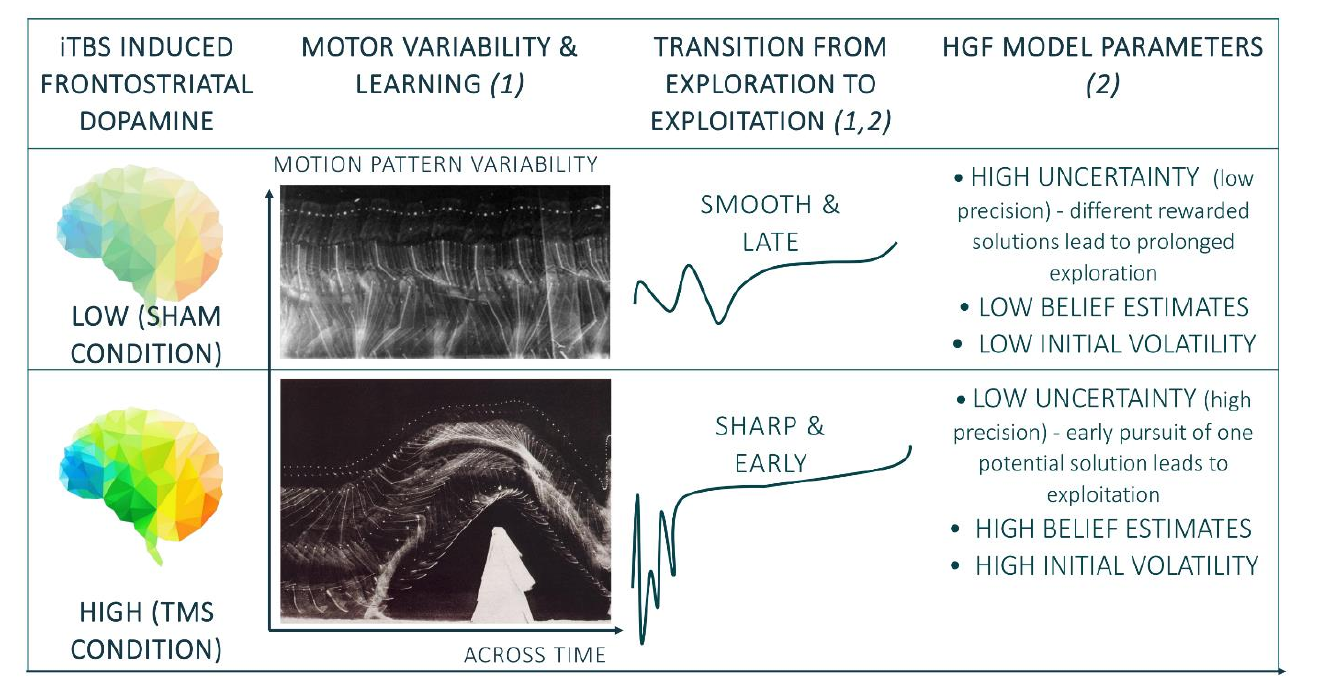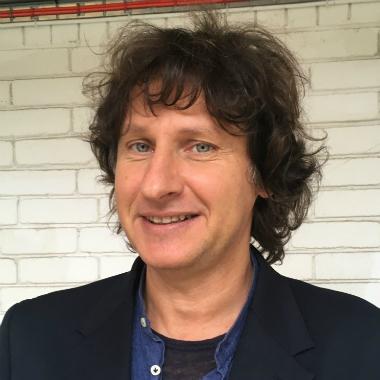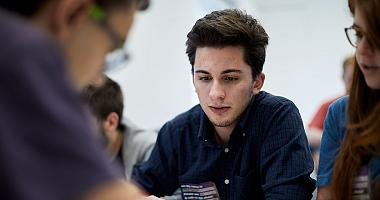MSc
Computational Cognitive Neuroscience
Content navigation menu
Why study MSc Computational Cognitive Neuroscience at Goldsmiths
Understanding the relationship between brain, cognition and behaviour is one of the biggest challenges for the scientific community. This established Masters course, integrating computer modelling with experimental research, equips students with a solid theoretical basis and practical experience of advanced data analysis and experimental techniques in computational and cognitive neuroscience.
- This cutting-edge Masters is at the forefront of a new, rapidly emerging field. It will help you develop a unique set of complementary skills, making you extremely competitive in securing data analyst or research positions in both industry and academia.
- The MSc is highly multidisciplinary, covering the theory and practice of computational and cognitive neurosciences. Areas of application range from machine learning to brain-computer interfaces, to research in cognitive and clinical neuroscience.
- We have strong links with industry. You can decide to carry out your final research project in collaboration with one of our industry partners and collaborators, paving the way for employment and post-Masters internship opportunities.
- We welcome applicants from a variety of disciplines including psychology, computing, neuroscience, engineering, biology, maths and physics. There is no need to have prior experience in programming to apply.
Contact the department
If you have specific questions about the degree, contact Max Garagnani or Maria Del Carmen Herrojo Ruiz.
Length
1 year full-time or 2 years part-time
Fees
Home - full-time: £13600
Home - part-time: £6800
International - full-time: £20000
Departments
Computing
Psychology
Programme overview
Computational cognitive neuroscience is a young and exciting discipline that attempts to understand how the human brain works by integrating computer modelling with experimental cognitive neuroscience research.
Building on the multi-disciplinary and strong research profiles of academics from our departments of Computing and Psychology, this degree will develop a new generation of scientists, trained in both neuro-computational modelling and cognitive neuroscience.
Core topics you’ll study include:
- Creating computational/mathematical models of neurons, circuits and cognitive functions
- The fundamentals of cognitive neuroscience (brain mechanisms and structures underlying cognition and behaviour)
- Advanced data analysis and neuroimaging techniques
What you'll study
You'll study the following compulsory modules:
| Module title | Credits |
|---|---|
| Foundations of Neuroscience | 15 credits |
| Multivariate Statistical Methods | 15 credits |
| Cortical Modelling | 15 credits |
| Cognitive Neuroscience | 15 credits |
| Modelling Cognitive Functions | 15 credits |
| Advanced Quantitative Methods | 15 credits |
| Research Project in Computational Cognitive Neuroscience | 60 credits |
Research project
Your research project – a crucial component of the course – will enable you to apply newly learned techniques in practice, and develop real world and transferable skills that employers look for:
- Understanding user needs
- Planning your time
- Presenting your work
- Evaluating your projects
It is also an excellent opportunity to combine computational modelling with empirical research in human participants.
Watch videos about your course
Alumni stories
We have an active MSc Computational Cognitive Neuroscience blog that features alumni success stories and student work, along with other advice and information.
Careers
Computational cognitive neuroscience graduates have a range of career options including:
- Academic – take part in teaching and academic research in the field
- Artificial intelligence – in a range of roles such as machine learning engineer or data scientist
- Clinical engineer – designing, developing and maintaining equipment for diagnosing illnesses and treating patients
- Communications – developing communications technologies as a communications engineer
- Data analyst – providing insight and analysis of data in a range of sectors
- Linguistics analysis – in areas such as speech recognition, text-to-speech synthesis, natural language processing, user research and computer-mediated language learning
- Programming, systems analysis and software – in areas such as games design, Human-Computer Interface (HCI) design and Software design and development
- Scientific research – in a variety of fields such as health and pharmaceutical research, and neural network applications
- Various roles in the IT sector
You may also choose to extend and deepen your academic study by undertaking a PhD in computational cognitive neuroscience or a related field.
Careers support
While studying your programme you will have access to the Goldsmiths Careers Service, which can give you tailored advice according to your own skills and interests. You can also seek advice from the tutors on your course.
When researching career opportunities, you may find it useful to visit the websites of professional bodies such as the Federation of European Neuroscience Societies, National Bernstein Network Computational Neuroscience, Cognitive Neuroscience Society Society for the Study of Artificial Intelligence and Simulation of Behaviour (AISB) and the Organisation for Computational Neurosciences.
Links with industry
You'll benefit from ongoing collaborative links with several companies having headquarters in Poland, Japan and the Netherlands; currently, our industry partners and collaborators include representatives from Sony CSL Japan, Technalia, Human Experience Dynamics and Anywyse (note that this list may change and that the implementation of a joint project with an industry partner is subject to their availability).
Carrying out your final research project with one of our collaborators in industry will enable you to gain cutting-edge skills much in demand in today's competitive job market, providing a ‘fast track’ route towards post-Masters internships and employment.
Take a look at previous examples of research projects, career paths followed by our graduates, and feedback from our alumni on the MSc Computational Cognitive Neuroscience blog.
Skills
During the course of the Masters you'll gain the following skills and knowledge:
- A sound understanding of brain mechanisms and structures underlying cognition and behaviour
- An understanding of how memory, attention and decision-making work
- Knowledge or experience of experimental cognitive neuroscience methods
- Statistical data analysis
- Knowledge of theory and practice of biologically constrained neural models of human brain function
- Computer programming skills
- Research, analytical, communication and software skills
Student projects

Student work from Tara Cogan that investigates the use of a convolutional neural network for the automated segmentation of paediatric brain tumours.

This project from student Lena Esther Ptasczynski investigated the role of dopamine in reward-based motor learning and in the regulation of explorative and exploitative motor behaviour in healthy human participants.
Investigating the use of a convolutional neural network for the automated segmentation of paediatric brain tumours – Tara Cogan
This project pioneered the use of a cutting-edge deep-learning technique (called “segmentation”) to distinguish tumour tissue from healthy tissue in MRI scans of paediatric brain tumour patients.
While segmentation is widely used in medical imaging, this AI method had never been previously applied in the paediatric context.
The results confirmed the viability of this technique, demonstrating how deep-learning models can find direct application in the clinic to aid in the rapid diagnosis and therapy planning, reducing human error and increasing the pace at which paediatric brain tumour patients can be treated.
Modulation of reward-based motor learning by changes in frontostriatal dopamine release using theta-burst stimulation – Lena Esther Ptasczynski
This project investigated the role of dopamine in reward-based motor learning and in the regulation of explorative and exploitative motor behaviour in healthy human participants.
To address our questions, the student used theta burst stimulation (TBS) over the left dorsolateral prefrontal cortex (DLPFC-TBS), which is a validated protocol that reliably modulates striatal dopamine release in humans and animals.
Using a Bayesian modelling approach to explain individual performance during a reward-based motor learning task, this project provided empirical support for intermittent (excitatory) DLPFC-TBS improving motor learning from reward signals in uncertain environments.
Enhanced DLPFC-TBS-related frontostriatal dopamine transmission increased learning by shifting the balance between motor exploration and exploitation and reducing the impact of environmental uncertainty on updating motor predictions.
Fees and funding
Annual tuition fees
These are the PG fees for students starting their programme in the 2025/2026 academic year.
- Home - full-time: £13600
- Home - part-time: £6800
- International - full-time: £20000
If your fees are not listed here, please check our postgraduate fees guidance or contact the Fees Office, who can also advise you about how to pay your fees.
It’s not currently possible for international students to study part-time under a student visa. If you think you might be eligible to study part-time while being on another visa type, please contact our Admissions Team for more information.
If you are looking to pay your fees please see our guide to making a payment.
Funding opportunities
Explore the Goldsmiths scholarships finder to find out what funding you may be eligible for.
If you are a UK student you may be eligible for a postgraduate loan.
Meanwhile our Careers Service can also offer advice on finding work during your studies.
Paying your fees
Find out about paying your tuition fees.
Additional costs
In addition to your tuition fees, you'll be responsible for any additional costs associated with your course, such as buying stationery and paying for photocopying. You can find out more about what you need to budget for on our study costs page.
There may also be specific additional costs associated with your programme. This can include things like paying for field trips or specialist materials for your assignments. Please check the programme specification for more information.
Entry requirements
You should normally have (or expect to be awarded) the following qualifications:
- First or upper second-class honours degree (or equivalent undergraduate degree) in a relevant discipline (including computer science, engineering, physics, mathematics, statistics, biology, psychology, medicine) or closely related field
- A-levels (or equivalent) in science, computer science or mathematics
You might also be considered for some programmes if you aren’t a graduate or your degree is in an unrelated field, but have relevant experience and can show that you have the ability to work at postgraduate level.
Applications will be reviewed on a case-by-case basis. Depending on previous background and experience, applicants may be required to take one or more pre-sessional courses (for example in programming, statistics, or maths) prior to the start of the programme. These courses will be free to MSc offer holders.
International qualifications
We accept a wide range of international qualifications. Find out more about the qualifications we accept from around the world.
If English isn’t your first language, you will need an IELTS score (or equivalent English language qualification) of 6.5 with a 6.5 in writing and no element lower than 6.0 to study this programme. If you need assistance with your English language, we offer a range of courses that can help prepare you for postgraduate study.
How to apply
You apply directly to Goldsmiths using our online application system.
To complete your application, you will need to have:
- Details of your academic qualifications
- The email address of your referee who we can request a reference from, or alternatively a copy of your academic reference
- Copies of your educational transcripts or certificates
- A personal statement
You'll be able to save your progress at any point and return to your application by logging in using your username/email and password.
Read our guide to applying for a postgraduate degree at Goldsmiths.

.jpg)





